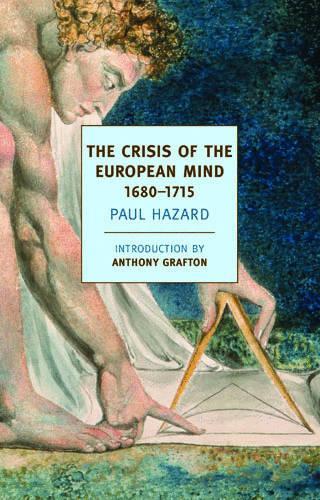
The Crisis Of The European Mind
(Paperback, Main)
Publishing Details
The Crisis Of The European Mind
By (Author) Paul Hazard
New York Review Books
NYRB Classics
15th April 2013
16th May 2013
Main
United States
Classifications
General
Non Fiction
History of ideas
940.252
Physical Properties
Paperback
480
Width 132mm, Height 203mm, Spine 26mm
510g
Description
Paul Hazard was one of the master historians of the twentieth century, and The Crisis of the European Mind is by common consent his masterwork, an ambitious study in intellectual history whose breadth of learning and authority is widely acknowledged to this day. The period from 1680 to 1715 was a turning point in Western history: the beginning of an intellectual revolution that would lead to the Enlightenment and beyond that to romanticism. With clarity as well as a sharp eye for historical detail, Hazard depicts the progressive erosion of the respect for tradition, stability, proportion, and settled usage that had characterized classicism. He shows how a new awareness of the countries beyond Europe encouraged a fresh critical re-evaluation of European institutions and how the growth of modern science and scientific method threatened the accepted intellectual order, while also prompting prosecution of free inquiry. Hazard goes on to consider the situation of the new thinkers who confronted this turbulent world, from Locke, who sought the foundations of reality in sensation and so paved the way for Rousseau, to Bayle, the Huguenot exile whose great dictionary taught Voltaire and his generation that morality could be separated from religion. Throughout, Hazard conveys the excitement of a revolution, the impact of which continues to be felt in our own time.
Reviews
'it's refreshing to turn to a genuine work of intellectual history that is back in print in a new edition ... if you want to understand the Enlightenment in its complexity and contradictions, read Paul Hazard's stylish book." New Statesman
Author Bio
PAUL HAZARD (1878-1944) was an eminent French historian of ideas and a pioneering scholar of comparative literature. After teaching at the University of Lyon and the Sorbonne, he was appointed to the chair of comparative literature at the College de France in 1925. Elected to the French Academy in 1939, in January 1941 he voluntarily returned from a semester of teaching at Columbia University to Nazi-occupied France, where he continued to teach and write. That same year his nomination to the rectorship of the University of Paris was rejected by the Nazis. His reputation rests on two major works of intellectual history: La Crise de la conscience europeenne, from 1935, and its sequel, concerned with European thought in the eighteenth century, published posthumously in 1946. ANTHONY GRAFTON is Henry Putnam University Professor of History and the Humanities at Princeton University. His most recent book is The Culture of Correction in Renaissance Europe.
